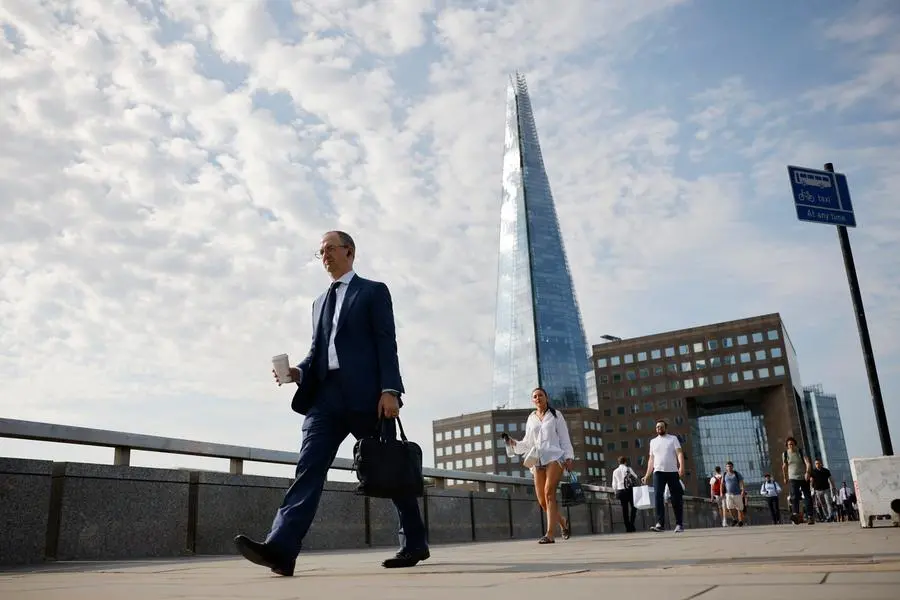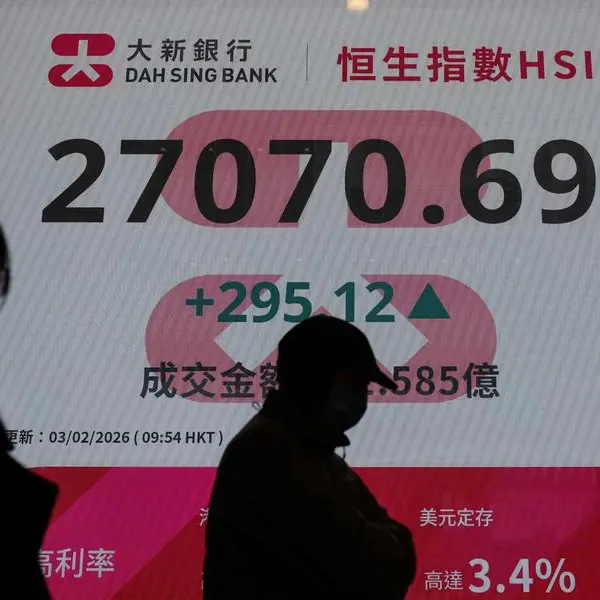PHOTO
The world will not return to "business as usual" following the pandemic alongside rocketing gas prices and forced migration in the wake of the Ukraine war, Europe's development bank forecast Tuesday.
Such a coming together of events -- including also supply-chain disruptions and extreme weather -- "would be challenging enough for governments and firms if it was spread over a decade or more", noted Beata Javorcik, chief economist at the European Bank for Reconstruction and Development (EBRD).
"And yet, all of this has happened in the space of just three years, with the prospect of more turbulence to come. It is clear that there will be no going back to the 'business as usual' of the pre-pandemic period."
Her forecast was contained in the 2022-23 EBRD Transition Report, titled "Business Unusual", which also highlighted firms hit by record levels of debt.
It said that "zombie firms", owing to artificial financial life support, were in fact dragging down healthier rivals.
Founded in 1991 to help former Soviet bloc countries switch to free-market economies, the London-headquartered bank has since extended its reach to include nations in the Middle East and North Africa.
- Refugees -
The EBRD said Russia's invasion of Ukraine had resulted in "the largest forcible displacement of people in Europe since the 1940s".
It added that "the influx of Ukrainian refugees has the potential to increase the European Union labour force by an estimated 0.5 percent by the end of 2022".
"This could alleviate some labour shortages in rapidly ageing European economies if mismatches between available jobs and skills are minimised," it said.
Data showed that nearly three in ten Ukrainian refugees in Europe are already employed in their current host country, the bank added.
"The number of people being forcibly displaced -- either internally or across international borders -- has increased considerably of late, with the total figure worldwide forecast to exceed 100 million by end 2022," the report noted.
It said almost two-thirds of all refugees come from Syria, Ukraine, the West Bank and Gaza, Venezuela or Afghanistan, and nearly half are children.
"One interesting message is that attitudes towards refugees improved since last year... this is true of emerging Europe," Javorcik told AFP.
In the same EBRD-focused region, she believed inflation had not yet peaked.
- 'No green shoots' -
"High energy prices are likely to persist into 2024," the economist predicted.
She said the EBRD was sticking to its forecast in September that the bank's investment zone was set for growth of three percent next year.
"In our previous outlook we... (also) had a pessimistic scenario with access to Russian gas completely cut off for Europe and I think we are getting closer" to that.
"At the moment we don't see any green shoots," Javorcik added ahead of the bank's next set of official growth forecasts in February.
In the report, Javorcik said that amid "constant crisis mode" for governments and business, leaders "need to think and plan strategically and focus on laying the foundations of long-term economic growth".
Fears persist of a global recession next year with inflation still sitting at the highest levels in decades for many countries on soaring energy and food bills -- consequences of the pandemic and Ukraine war.
"Climate-related risks to global supply chains are rising, with serious implications for the production, manufacture and distribution of goods around the world," the report said.
"Environmental considerations need to become a central part of firms' risk management."
The EBRD said policymakers could look at introducing stress tests for supply chains in critical sectors, similar to those carried out on banks following the 2008 global financial crisis.
© Agence France-Presse




















